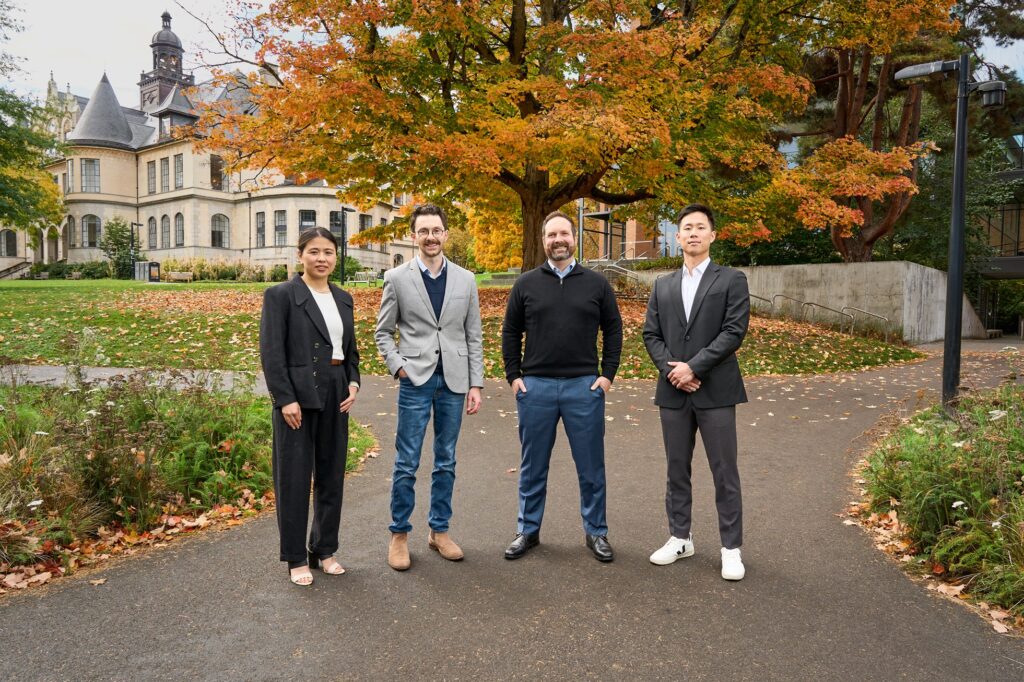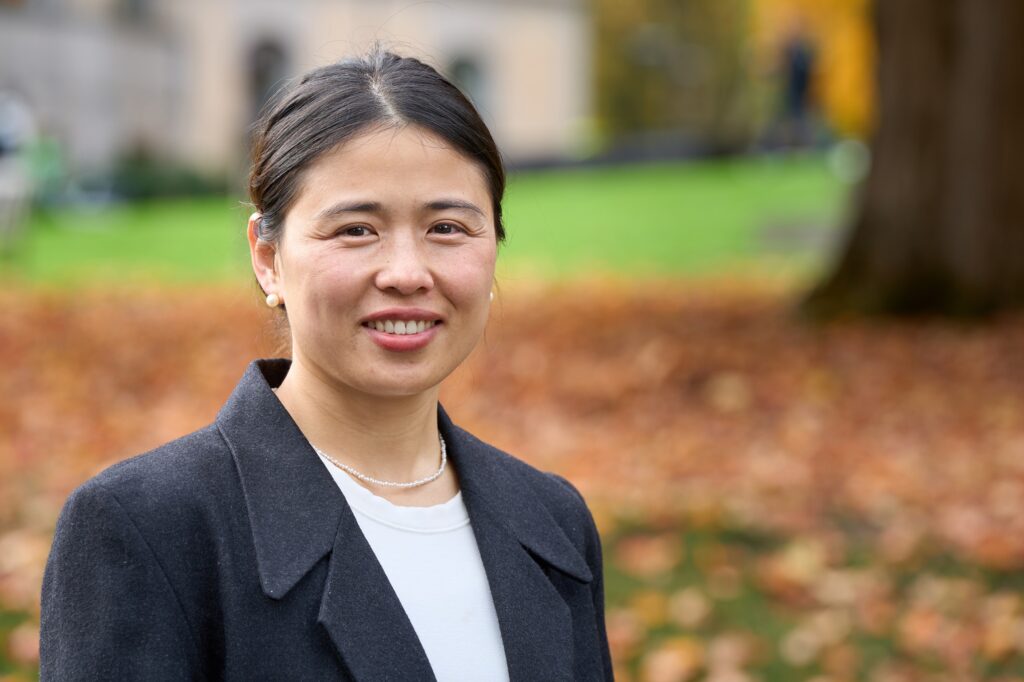Bridging the Gap Between Climate Science and Finance
Climate data scientist Xiaojuan Liu joins UW Climate Risk Lab
When Climate Data Scientist Xiaojuan Liu (Ph.D. 2018) accepted her job offer at the UW Climate Risk Lab—which is housed at the Foster School of Business—she was immediately given her first assignment: Enroll in a Foster School finance course.
Liu needed a foundational understanding of finance to support the lab’s mission to make the best climate risk data, analysis, and tools available to all. This equips corporations, public utilities companies, and policy makers with the information they need to understand and manage the financial risks of climate change and related disasters.
“As a climate scientist, it’s a challenge to understand what the financial experts need. Financial experts have the same challenge: how to convert climate information to potential financial impact,” she explains.

Gaining expertise and finding a purpose
Learning to bridge finance and climate science was a natural evolution for Liu, whose academic journey reflects a deep commitment to understanding climate systems and applying that knowledge to practical challenges.
Liu’s academic career began in China, where she earned undergraduate and Master’s degrees in atmospheric sciences. She moved to the U.S. to pursue her doctorate at the University of Washington, focusing on how changes in the Earth’s rotation and the Atlantic Ocean’s width could impact precipitation and temperature. As her theoretical research progressed, she felt a growing desire to apply her work to real-world problems.
This interest led her to the field of climate-related financial risk. After receiving her Ph.D. from the University of Washington, Liu held postdoctoral positions at the University of California, Berkeley and the University of California, Irvine. She then joined nonprofit Climate Change AI, where she learned to use AI to leverage large amounts of data to address climate problems.
Love of learning leads Xiaojuan Liu back to Foster
In 2023, Phillip Bruner, Founder of the UW Climate Risk Lab and Professor of Sustainable Finance at the Foster School, approached Liu about joining the lab. Liu was drawn to the lab’s use of financial tools to address climate change and the opportunity to learn from business experts. “I thought, ‘Oh, that is really cool. I want to learn about that,’” Liu recalls. “My decision was basically driven by curiosity.”
“I was inspired by Xiaojuan’s work for Climate AI and Google Deepmind,” Bruner says. “Her keen ability to identify research gaps in climate data science made me think she’d be an ideal fit to identify and help fill similar gaps in climate-related financial data.”
Liu combines her climate expertise and newly-acquired knowledge making robust tools publicly available through the lab’s Climate Risk Wiki. “Our mission is to provide open source resources that can be used to integrate climate-related financial risk analysis into decision making across multiple sectors. For example, public utilities, corporations, and insurance companies can all find the information they need on our wiki to do their own analysis and assessment,” she says.

Shaping the next generation of climate risk experts
Recognizing the importance of technical abilities to career success, Liu offers students support on class projects, internships at the lab, and individual mentorship. “We welcome students interested in financial systems to use our resources and data and to collaborate with us to build a better open-source community,” she says.
In fact, the lab’s current focus on wildfire risk was sparked by one of Bruner’s capstone projects, where students in Foster’s Master of Science in Business Analytics (MSBA) performed a qualitative assessment of how wildfires may impact data center reliability in Eastern Washington.
Liu is currently supervising an intern from the UW College of the Environment. She is helping him enhance his data analysis skills as they work together on the wiki, inviting participation in decisions on the wiki’s structure and content, and providing guidance on his analysis of salmon production in Washington state and its impact on the fishery sector’s revenue.
Liu describes her work with the UW Climate Risk Lab as “the starting point” for using climate and financial data to solve real-world problems. She says, “We hope we can gather and provide the open-source resources needed to accelerate the understanding of climate-related financial risk.”
